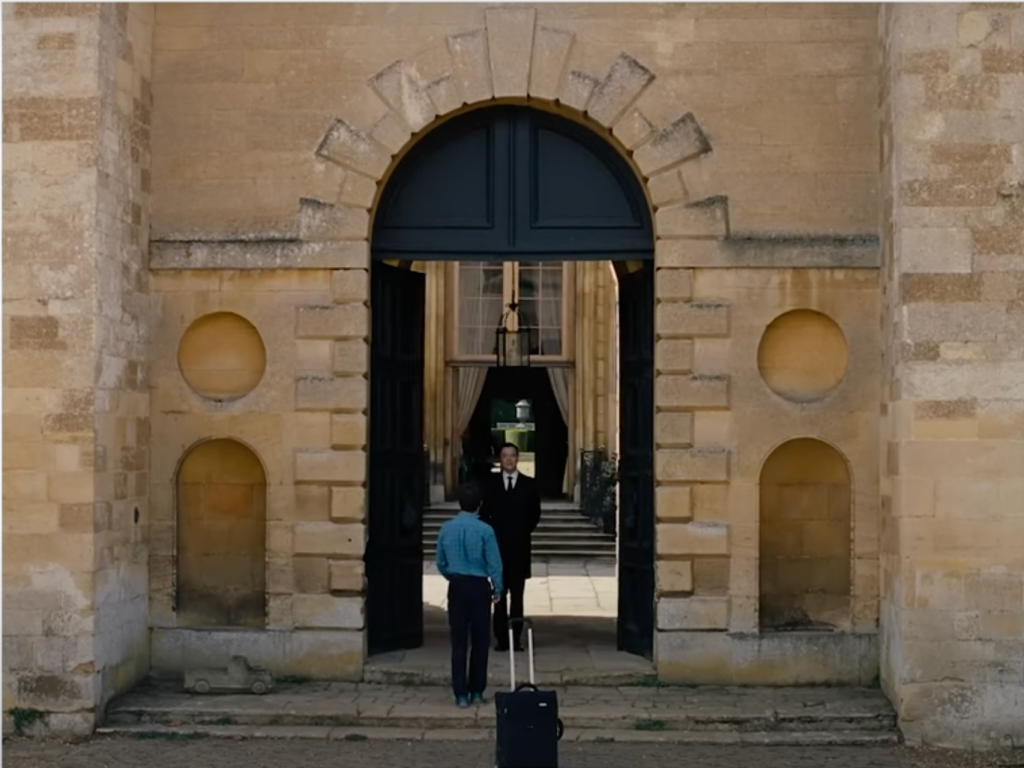
2023 | R | 2h 7m | UK | Emerald Fennell
After her directing debut with Promising Young Woman (2020), English actress, writer and director Emerald Fennell, has got everyone hooked on her second feature Saltburn.
Had it not been for my Christmas holidays being “blessed” by a week-long fever and consequent immobility from my couch, I am not sure I would have watched this film. It is one of those cases where marketing has the opposite effect: you hear so much about the latest, hottest film that it becomes “old news” very quickly. I think most people in my age bracket (20-30) have been involuntarily fed an incredible amount of information about Saltburn, via word-of-mouth, billboards and mainly social media. The film was released in UK cinemas on November 17th 2023. It became a phenomenon similar to big film franchises: people dressed up to go to the cinema, organized Saltburn-themed dinners with friends, they documented their families’ reaction to the infamous bathtub scene which resulted in “Jacob Elordi’s bathtub water” scented candles. (Why???) All of this, even if a little out there, was probably the hoped result of Fennell, who wanted to make a film about fetishization, obsession and class satire. However, was she successful in her objectives?


Taking inspiration from her own time studying there, Fennell writes a period drama set in 2006 at Oxford University. The film delves into the dynamics of privilege and class as Oliver Quick (Barry Keoghan), a “scholarship student”, becomes obsessed with fellow student Felix Catton (Jacob Elordi). Felix is/has everything Oliver desires: he is wildly handsome, charismatic and kind, hangs out with his tight group of friends and is popular with girls. But most importantly, he comes from an aristocratic family. As the school year proceeds Oliver moves with his head low through the Oxford halls, being the object of mockery because of his family’s low social status. However, after he lends Felix his bike to get to class, the two become good friends. Felix will later invite Oliver to spend the summer at his family’s grandiose summer estate, Saltburn. From this moment a captivating tale of hidden secrets starts to unravel.

A feeling of mystery and seduction is exuded by the film’s photography. Cinematographer Linus Sandgren, whose beautiful work can be admired in Babylon and No Time to Die, masterfully brought Fennell’s script to life. Sandgren utilized a 1.33:1, known as 4:3. This unconventional ratio creates a more squared frame, allowing for the grand, tall ceilings of the Saltburn estate to be fully captured in all its splendour. However, beyond showcasing the beautiful locations, this aspect ratio also serves a purpose in the storytelling. It induces a sense of claustrophobia, making us, as viewers, feel the same confinement as the characters on screen. This discomfort is further emphasized by the black bars on the sides of the frame, a constant reminder of the characters’ imprisonment. Sandgren’s decision to shoot on film only adds to the authenticity and richness of the visuals. Sandgren revealed that he drew inspiration from Baroque and Renaissance paintings, particularly Caravaggio’s use of chiaroscuro, to play with light and shadows on screen. The abundance of wide shots reinforces the feeling of detachment. And what is something we have to look at from a distance to decide how we feel about it? A painting.

For a 2-hour and 7-minute runtime, Saltburn felt much longer. The first act was protracted at a leisurely pace, but once the characters arrive at Saltburn, the events transpire quickly, as the time is running out. This also results in the last 20 minutes feeling rushed and not well refined from the writing stage. What keeps the viewer in front of the screen is mainly Rosamund Pike’s performance as Elspeth Catton, Felix’s out-of-touch mother. She was the primary comedic source of the film and delivered an authentic performance, with her wickedly funny portrayal of a narcissistic elitist who loves to play God by inviting “charity cases” into her home, until she gets bored and loses interest. Audiences have gone to see Saltburn for Elordi, but they have definitely stayed for Pike.

Finally, even if visually striking and masterfully acted, the overall feeling Saltburn left me with was emptiness. There was no emotional response to it if not slight disgust and “cringe” (yes, we are using that word), which I hope was not the sole reaction the director intended. The class satire was tone-deaf, especially when coming from a privileged, private school alumna like Fennel, and, I dare to say, non-existent. Were Saltburn lacked in depth, it made up for with spectacle. The closing scene (spoilers!!) of Keoghan dancing naked through the mansion’s rooms to the sound of Sophie Ellis-Baxter’s Murder on the Dancefloor, is a prime example. Perhaps Emerald Fennell’s dark comedy has pioneered a new age of nostalgic period dramas set in the 2000s and, I think I speak for my generation when I say, we are here for it.

REFERENCES
https://www.thewrap.com/saltburn-ending-emerald-fennell-interview/
https://britishcinematographer.co.uk/linus-sandgren-asc-fsf-saltburn/
Leave a comment